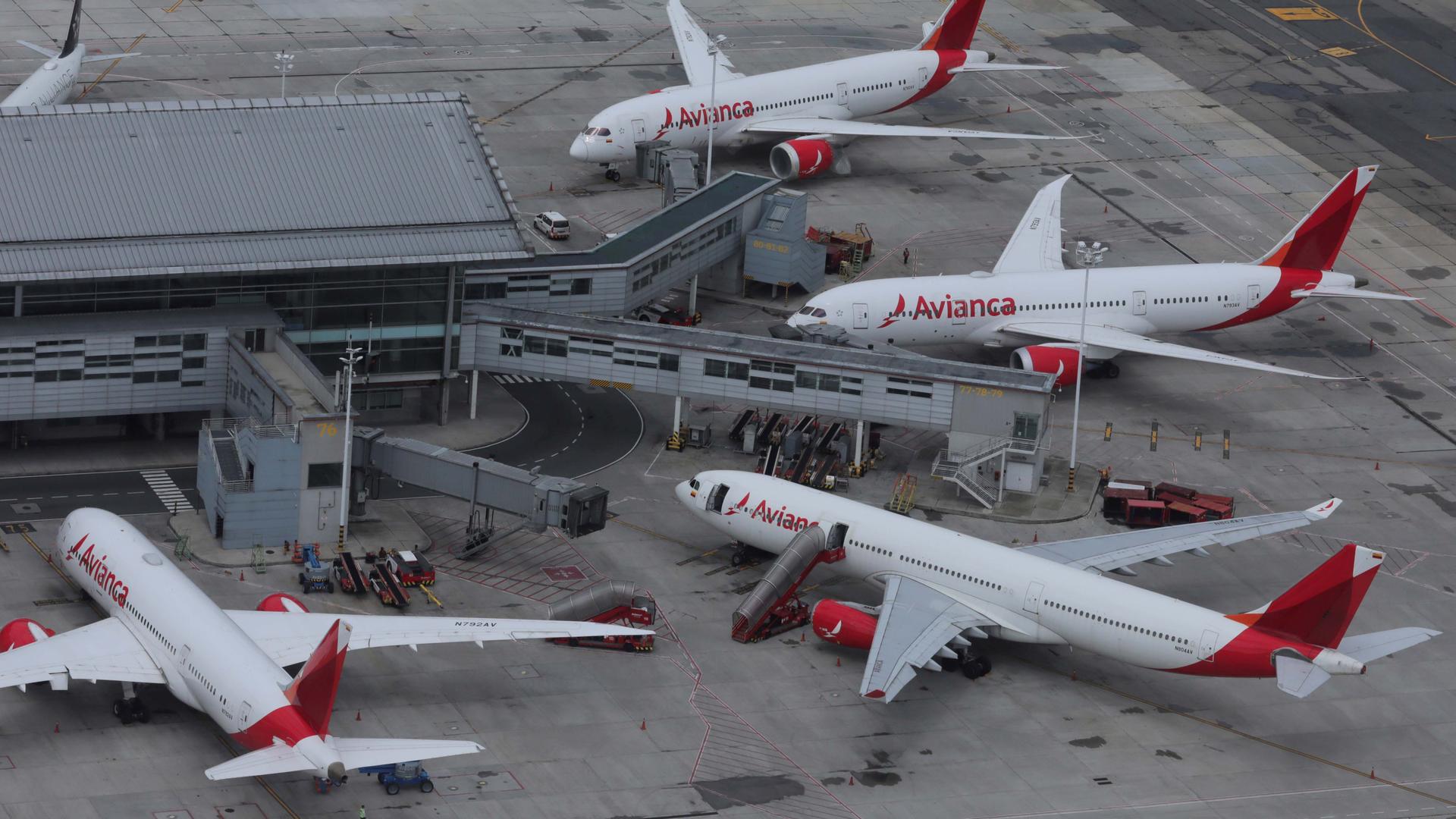Colombian airlines face controversy over loans to survive pandemic crisis
The Colombian government is considering extending loans to the country’s airlines, as the coronavirus pandemic has grounded their fleets and wiped out most of their revenue through at least June.
Altogether, the country’s airlines would need some $1.2 billion in financial aid to stay in business without flying through the middle of the year, according to the International Air Transport Association, an industry trade group. Most of the cash would likely go to Avianca, which accounts for about half of Colombia’s flights and passengers. Avianca filed for Chapter 11 bankruptcy protection in the United States last week.
Governments worldwide — from Singapore to the Netherlands and the US — have devoted more than $85 billion to prop up airlines during the coronavirus pandemic, according to a Bloomberg News analysis. But the request for financial aid is controversial in less rich Latin American economies, where millions live in poverty and public health systems are ill-equipped to respond to a large-scale health crisis.
Related: ‘Reckoning day’ could be ahead for airline industry amid coronavirus challenges
Medellín-based Vivia Air, Colombia’s largest low-cost carrier, has not laid off any of its roughly 730 workers but has instituted across-the-board salary cuts, the company’s chief executive, Felix Antelo, told The World. Antelo’s salary was reduced by 70%. The company is asking the government for a $50 million bridge loan to restart operations once air traffic returns, he said.
“Not for a bailout, not for relief,” Antelo said. “It’s a loan that we will repay, obviously, and those are figures that are reasonable for a country like Colombia.”
Carolina Cortizo, managing director of Bogotá-based airline, Wingo, which employs about 230 people, said the company has reduced its costs by 20% — “which would have seemed awesome pre-COVID[-19]” — but is looking to make further cuts. The company is seeking a loan from the government of less than $12.5 million, she said.
“There’s nothing I want more than to get our planes back in the sky,” Cortizo said. “Our team has been putting a huge effort into the back-to-normal of our airline.”
Related: Governments offer aid as airlines forced to deepen cuts to flights, staffing
But many leaders in Latin America likely see air travel as a luxury and may be reluctant to extend help to airlines during the crisis, said Thijs Boonekamp, an economist with SEO Amsterdam Economics, a think tank.
In Colombia, about 1 in 4 people live below the poverty line. And in Mexico, President Andrés Manuel López Obrador halted the construction of a new airport for Mexico City because he said it would represent no benefit to the working poor.
Latin American countries have less “fiscal space” than richer economies to help airlines, said Tomás Serebrisky, an economist with the Inter-American Development Bank.
“They are allocating those resources to more immediate and urgent needs like the need to revamp the health system, or provide income support to the most vulnerable poor of the population,” Serebrisky said.
Our coverage reaches millions each week, but only a small fraction of listeners contribute to sustain our program. We still need 224 more people to donate $100 or $10/monthly to unlock our $67,000 match. Will you help us get there today?
